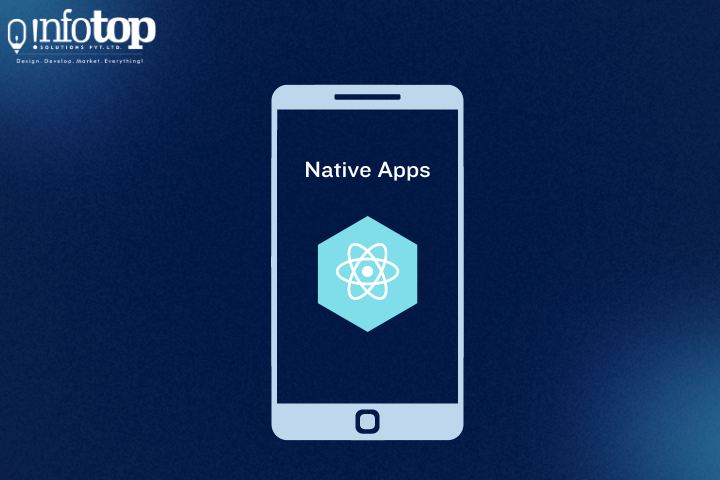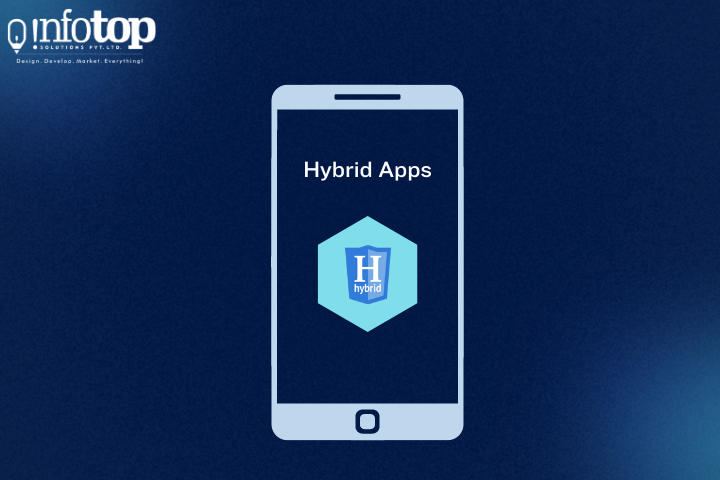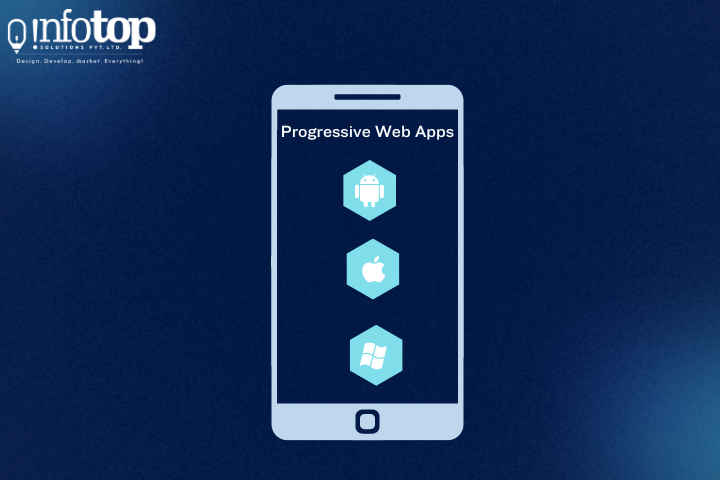
Mobile app development services have integrated themselves into our daily lives, performing a plethora of functions ranging from communication to entertainment and productivity. When contemplating the development of a mobile app, you must promptly decide which development approach to adopt. Three primary options exist: Native apps, Hybrid apps, and Progressive Web Apps (PWAs). Each approach boasts its own set of advantages and disadvantages, and your decision can substantially affect the performance, development time, and cost of your app. Understanding the differences between Native vs Hybrid vs PWA is crucial for making an informed choice that aligns with your project goals and requirements.
1. Native Apps

When developing native apps, designers tailor them to a specific mobile operating system, like iOS or Android. This entails utilizing platform-specific programming languages, tools, and frameworks (Objective-C/Swift for iOS and Java/Kotlin for Android), necessitating distinct codebases for each platform. Here are some essential aspects to contemplate during the development of native apps:
Pros
- Native Features: You can seamlessly harness all the features and capabilities of the device, including the camera, GPS, and sensors.
- User Experience: Native apps deliver a familiar user experience by adhering to platform-specific design guidelines.
- App Store Presence: You can make your app easily discoverable by users by publishing it on app stores like Apple’s App Store and Google Play.
- Performance: Because they are optimized for their specific platform, native apps typically deliver the best performance and responsiveness, resulting in smoother animations and faster load times.
Cons
- Platform-Specific Skills: Developers require proficiency in platform-specific programming languages and tools.
- Approval Process: Submitting and gaining approval for apps on app stores can consume time and be occasionally unpredictable.
- Development Time and Cost: Building separate apps for iOS and Android can consume time and be costly. Additionally, maintaining them necessitates double the effort.
2. Hybrid Apps

In hybrid mobile app development, developers merge elements of native and web apps by utilizing web technologies like HTML, CSS, and JavaScript. They then encapsulate these components in a native container, facilitating deployment across multiple platforms with a single codebase. Here’s what you should understand about hybrid apps:
Pros
- Web Technology: Developers can utilize their existing web development skills to build hybrid apps.
- Access to Some Native Features: Plugins in hybrid frameworks grant access to specific native features.
- Faster Development: You can make updates and changes more swiftly compared to native apps since you only need to modify one codebase.
- Cross-Platform Development: Targeting multiple platforms with a single codebase reduces development time and costs.
Cons
- Design Challenges: Platform differences can pose a challenge in achieving a consistent and native-like user experience.
- Performance Limitations: Hybrid apps might not exhibit performance levels comparable to native apps, mainly for graphics-intensive or complex applications.
- Limited Native Access: Although hybrid apps can access certain native features, they might not fully exploit the device’s capabilities.
3. Progressive Web Apps (PWAs)

Progressive Web Apps (PWAs) essentially function as web applications accessible through a web browser but provide a more app-like experience. They’re crafted to operate on any platform with a modern web browser. Here’s what you need to understand about PWAs:
Pros
- Automatic Updates: PWAs can seamlessly update without requiring user intervention.
- No App Store Approval: PWAs bypass the need for approval from app stores, thereby reducing time-to-market and avoiding potential restrictions.
- Cross-Platform Compatibility: PWAs are highly accessible, running on any device with a compatible browser.
- Lower Development Cost: Working with web technologies often leads to faster and more cost-effective development.
Cons
- Offline Limitations: While PWAs can function offline to a certain extent, they might not offer the same functionality as native apps.
- Limited Access to Native Features: PWAs possess limited access to certain device features, such as sensors and the camera.
- Limited App Store Presence: The lack of prominent features in app stores can impact the discoverability of PWAs.
Making the Right Choice
Several factors, including your project’s scope, budget, and target audience, influence the choice between native, hybrid, and PWAs. Here are some key considerations to assist you in making an informed decision:
- User Experience: Consider the user experience and whether your app requires close adherence to platform-specific design guidelines.
- Development Time and Cost: If you have a limited budget and require a quick release of your app on multiple platforms, hybrid or PWA development might be more suitable.
- Performance: For high performance and full access to native features, native development may be the optimal choice for your app.
- Maintenance and Updates: Consider the significant variation in long-term maintenance and update processes between the different approaches.
- Offline Functionality: Consider the limitations of PWAs and hybrid apps if your app needs to function well offline.
Ultimately, there is no one-size-fits-all answer, and the best choice for your project depends on your specific goals and constraints. Consulting with experienced mobile app developers who can assess your needs and recommend the most appropriate approach for your mobile app development project is often beneficial.
How Do You Select the Best Development Type for Your Business?
In deciding between Native, Hybrid, or PWA development for your app, it’s crucial to weigh factors like performance, budget, and user experience. Engaging a reputable software development company in India can provide invaluable guidance tailored to your project’s needs, ensuring the optimal path for success.
